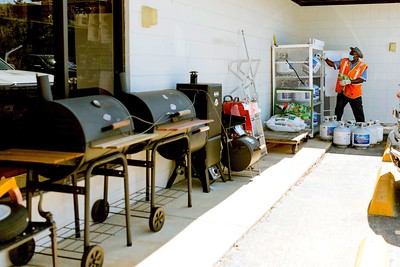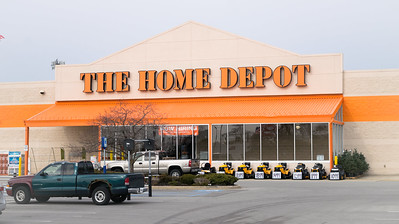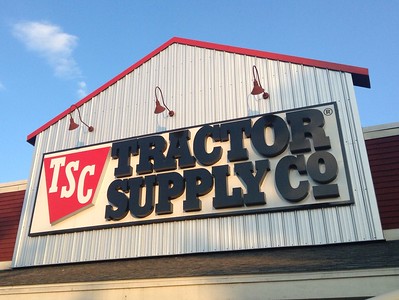
COST OF PROPANE TANK EXCHANGE THIS YEAR
The cost to exchange a propane tank in 2025 generally ranges from $15.99 to $23.99, depending on the location and retailer. For example, Blue Rhino offers exchanges at various prices: around $15.99 at Farm Store, $20.72 at H-E-B, and approximately $23.99 at Walgreens. Sheetz provides exchanges at about $17.99 for a 20-pound tank and $22.99 for a 30-pound tank. Overall, prices may vary due to factors like location, market conditions, and specific retailer pricing strategies.
| Retailer | Cost for 20-pound tank | Cost for 30-pound tank |
|---|---|---|
| Sheetz | $17.99 | $22.99 |
| H-E-B | $18 – $25 | N/A |
| Pavilions | $18 – $25 | N/A |
| Home Depot (AmeriGas) | $19.98 | N/A |
| Blue Rhino | $15.99 – $23.99 | N/A |
| King Soopers | $19.99 | N/A |
| Sam’s Club | $17.98 | N/A |
| Shaw’s | $20.99 | N/A |
How Propane Tank Exchange Works
Average Costs of Propane Tank Exchange
Understanding the costs associated with propane tank exchanges is essential for homeowners, businesses, and BBQ enthusiasts alike. Below, we delve into the average costs, the influence of market fluctuations, and some insights to bag the best deals.
1. Price Range for Common Sizes:
- 20lb Tank: Commonly used for grills and small heaters, the 20lb tank is among the most popular sizes. As of my last update in 2023, exchanging a 20lb tank typically ranged from $18 to $25. However, prices can vary based on location and retailer.
- 30lb Tank: Often used for RVs and larger heaters, the 30lb tank is another frequently sought-after size. The average exchange cost ranged from $25 to $35.
- Note: It’s essential to emphasize that these prices may fluctuate based on various factors like location, supply and demand, and retailer mark-ups.
2. Comparisons with Previous Years to Track Inflation or Price Changes:
- Over the past few years, the price of propane and the associated tank exchange costs have been influenced by several factors, including crude oil prices, propane production rates, and overall energy market trends.
- From 2022, for instance, there was an approximate increase of 10-15% in propane tank exchange prices. This increment can be attributed to rising production costs, increased demand, and global economic shifts.
- Keeping track of these changes can be beneficial for consumers, especially if they wish to anticipate future costs or discern patterns in pricing.
3. Tips for Finding the Best Deals:
- Loyalty Programs: As mentioned earlier, loyalty programs from propane suppliers can offer discounts or rewards for regular customers.
- Bulk Exchanges: If you possess multiple tanks, try to exchange them simultaneously. Bulk deals or volume discounts can be more economical.
- Promotions: Retailers might offer special promotions during off-peak seasons, holidays, or for new customers. Stay updated on these potential savings.
- Price Comparison: Before settling on a retailer, compare prices from various suppliers in your vicinity. Some mobile apps or websites provide real-time price comparisons for propane tank exchanges.
- Ask for Referrals: Sometimes, friends, neighbors, or colleagues can refer you to a particular retailer that offers competitive prices or promotions.
Propane tank exchange costs can be influenced by a myriad of factors. Being aware of average prices, market trends, and knowing where to find deals can lead to significant savings over time. Always remember to balance cost considerations with safety and quality of service.
Read related article: Gas Station Worker Cannot Exchange Propane Tank (Reasons Why)
Estimated Cost of Exchanging a 20-pound Propane Tank at Various Locations
| Location | Cost |
|---|---|
| Circle K Gas Station | $21 |
| Costco | $10 |
| Gas Station (Shell, Mobil) | $25 |
| Ace Hardware | Varies |
| Dollar General | Varies |
| Speedway | Varies |
| Home Depot | $20 |
| Kroger | $18 |
| Lowe’s | $20 |
| Menards | $2~ per gallon |
| Sam’s Club | $14 |
| Tractor Supply Plus | $2.29 per gallon |
| True Value | $21 |
| U-Haul | $15 |
| Walgreen’s | $20 |
| Walmart | $20 |
[table id=3 /]
Factors affecting the cost of Propane Tank Exchange
The cost of exchanging a propane tank at a gas station is influenced by several factors, including:
- Location: The cost of propane tank exchange can vary depending on the location, as the cost of propane and the operating expenses of the gas station can differ from region to region.
- Size of the tank: The size of the tank you are exchanging will affect the cost of the exchange. Larger tanks typically cost more to exchange than smaller tanks.
- Current price of propane: The price of propane can fluctuate, and the cost of exchanging a propane tank is directly tied to the current price of propane.
- Availability of discounts or promotions: Some gas stations may offer discounts or promotions for propane tank exchanges, which can lower the overall cost. It’s always a good idea to ask about any available discounts before making a purchase.
By considering these factors, you can get a better understanding of the cost of exchanging a propane tank at a gas station and make an informed decision about where and when to exchange your tank.
How to Save Money
Finding ways to save on propane tank exchanges can provide significant cost savings over time. Here’s a deeper dive into some strategies to make the most of your money:
Checking for Promotions or Discounts
- Seasonal Sales: Some retailers offer discounts during specific times of the year, especially before or after peak BBQ seasons.
- Special Events: Holidays, anniversaries, or store opening events might come with special promotions.
- Online Coupons: Websites or apps may offer digital coupons or promo codes that can be used for discounts on exchanges.
Membership Clubs or Loyalty Programs Offering Reduced Rates
- Wholesale Clubs: Stores like Costco or Sam’s Club often offer member-exclusive prices, which might be lower than typical retail prices.
- Loyalty Programs: Some propane suppliers or retailers offer loyalty cards. With every purchase or exchange, you earn points which can be redeemed for discounts in the future.
- Auto-Refill Discounts: Some services might offer discounts if you set up automatic tank exchanges or refills, ensuring consistent business for the provider.
Bulk Exchanges or Group Discounts
- Bulk Purchases: If you have multiple tanks, see if exchanging them all at once might fetch you a discount.
- Neighborhood Group Buys: Collaborate with neighbors or friends. By pooling resources and exchanging tanks together, you might qualify for group discounts.
- Business Discounts: Businesses that rely on propane for their operations, like restaurants, may be able to negotiate better rates for larger quantities. Even if you’re not a business owner, understanding these rates can give you leverage in price negotiations.
Considering the Longevity and Quality of the Tank
- Invest in Quality: While higher-quality tanks might cost more upfront, they can last longer and may not need to be exchanged as frequently, offering long-term savings.
- Regular Maintenance: Taking care of your propane tank by ensuring it’s stored correctly and checking for leaks or damages can extend its life, saving you money in the long run.
- Understand Warranty: Some propane tanks come with warranties. Familiarize yourself with these to avoid unnecessary exchange costs for tanks that might be replaced free of charge.
While the cost of propane tank exchanges can add up over time, employing these money-saving strategies can help in managing and reducing those expenses. Always remember, however, to prioritize safety. No discount is worth compromising on the secure and correct handling of propane tanks.
Read related article: Can I Exchange Propane Tank That is Not Empty? (Fees Included)
It is Good to Know the Cons of Exchanging Propane Tank
There are several cons to exchanging a propane tank rather than refilling it:
- Higher cost: Exchanging a propane tank is often more expensive than refilling it, as retailers charge a premium for the convenience of exchanging an empty tank for a full one.
- Increased waste: Exchanging tanks leads to more waste, as the old tank must be disposed of and a new one is purchased.
- Reduced tank lifespan: Each time a propane tank is exchanged, its lifespan is reduced, as the tank must be recertified before it can be refilled. This can lead to a shorter overall lifespan for the tank and higher costs in the long run.
- Reduced propane availability: In times of high demand, exchanging tanks may lead to a shortage of propane as more tanks are taken out of circulation.
- Inconvenient exchange locations: Not all retail chains or gas stations offer propane tank exchange, which may make it difficult for some consumers to find a convenient location to exchange their tank.
Exchanging a propane tank can be a convenient option for those who do not have easy access to a refill station or do not want to handle the process of refilling a tank. However, it is important to consider the cons and weigh them against the benefits before deciding whether to exchange or refill a propane tank.
Read related article: Who Does Propane Tank Exchange Near Me?
Why It Is More Costly to Exchange Propane Tank than to Refill
- Premium for convenience: Retailers charge a premium for the convenience of exchanging an empty tank for a full one. This premium is reflected in the higher cost of exchanging a tank.
- Cost of new tank: When a consumer exchanges a propane tank, they are purchasing a new tank, which can be more expensive than simply refilling the existing one.
- Recertification costs: Each time a propane tank is exchanged, it must be recertified before it can be refilled. This recertification process adds to the cost of exchanging the tank.
- Supply and demand: In times of high demand, the cost of exchanging a propane tank may be higher as retailers adjust their prices to reflect the increased demand.
- Reduced competition: In areas with limited access to refill stations, retailers may have less competition, allowing them to charge a higher price for propane tank exchange.
To Make a Conclusion
The cost of exchanging a propane tank in 2023 can vary depending on several factors such as location, size of the tank, and the retailer you are purchasing from. On average, the cost can range from $15 to upwards of $30 or more. To save money on propane tank exchanges, it’s recommended to shop around, take advantage of promotions and discounts, buy in bulk, use a loyalty program, and consider refilling your tank.
By following these tips, you can find the best deal on propane tank exchanges and make the most of your propane usage. Remember to always check with your local retailers for their current prices and any potential promotions they may have.

Mike is an experienced propane technician with over 15 years of professional experience in the field. He has dedicated his career to helping customers with their propane needs, from installation to maintenance and repair. Together with Jeremy, he co-founded this website to provide useful information and guidance to customers seeking reliable propane services.




